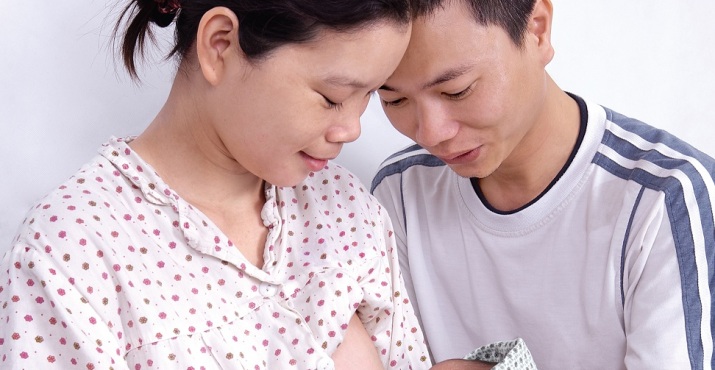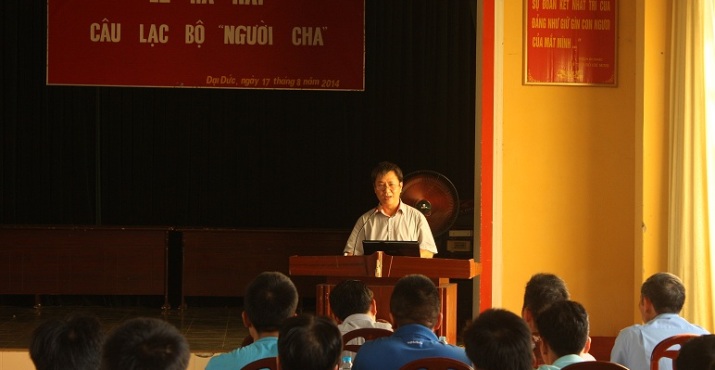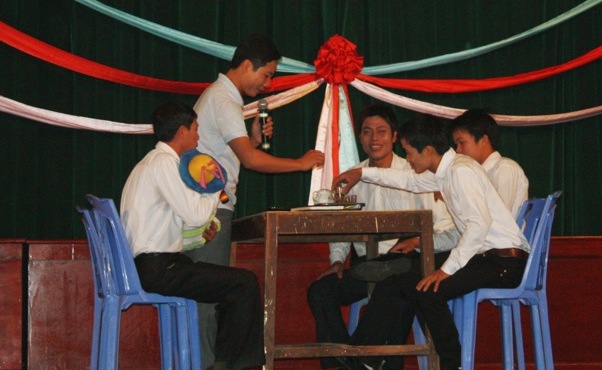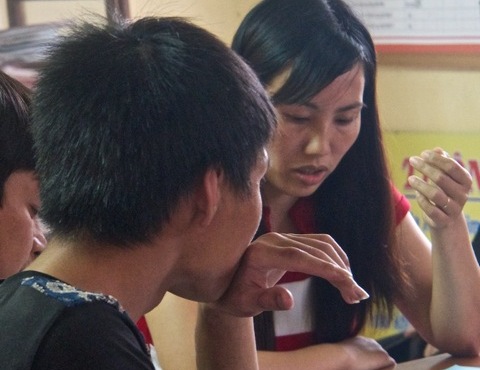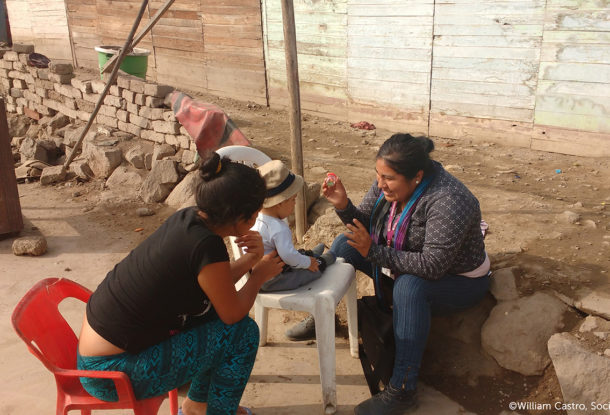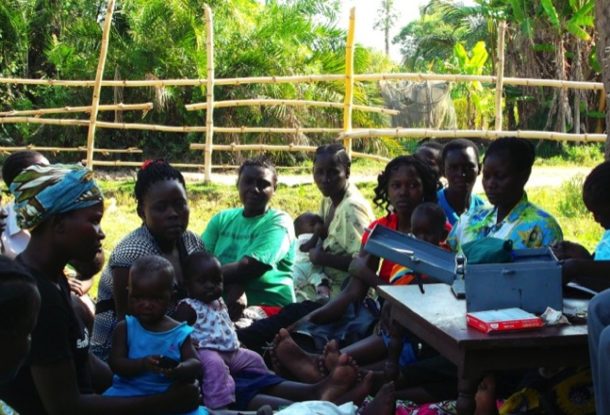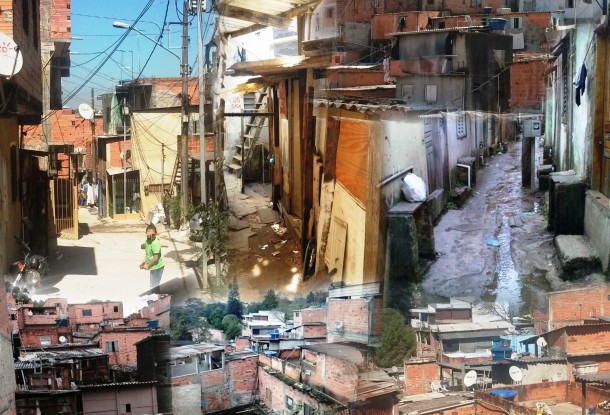- The innovation is designed to provide information and encourage fathers to develop positive attitudes towards supporting exclusive breastfeeding and to foster a more sensitive, responsive, and emotionally connected relationship between father and infant.
- Fathers attend one antenatal fathers’ group learning session and a follow-up individual antenatal counseling visit.
- Within the first two days after the birth of their infant, fathers are provided with an interactive session, led by a health worker, engaging them in active learning about and with their infants.
- Home visits by a health worker when the infant is 7 days, 6 weeks and 3 ½ months old reinforce how to provide support for exclusive breastfeeding and engage fathers in discussions regarding developmentally appropriate ways to interact with their infants in the following days and weeks.
- Fathers are given a brochure highlighting ways to provide breastfeeding help and a father-infant developmental calendar with ideas for ways fathers can interact with their infants throughout the first year.
- In order to development of ongoing peer support and validation for being engaged, involved fathers, Fathers Clubs are being developed in each commune. All intervention fathers will be invited to join the Fathers Club and one or two fathers will be chosen by the group to be trained as Fathers Club leaders.
- One of the primary activities of the Fathers Clubs (which meet at least once per month) will be to plan for group participation in a fathering contest that will be held approximately 6 months after the inception of the clubs. Fathers will be encouraged to develop fun and informative skits, songs, poems, art, or photo displays that demonstrate how fathers can show their love to their wife by learning about and supporting breastfeeding and how fathers can share their love for their infant through direct positive, responsive interactions. During fathers club meetings, fathers will also be provided with opportunities to discuss their joys, questions, and concerns about being actively involved fathers.
- The contest itself will involve a friendly competition between Fathers Clubs that will be open to the public. Other fathers in the community, friends and relatives, politicians and community leaders will be invited to attend the contest.
- In order to increase public awareness about father involvement and begin a shift in social network norms regarding breastfeeding support and direct father engagement with their infants messages are being broadcast on the local commune loudspeaker system. A 5 to 10 minute message about father involvement in breastfeeding and a second message about the value of father-infant interaction are being broadcast weekly either in the morning or the early evening throughout the project.
 What about Dad? Recent research has shown that children of a highly-involved male parent show increased cognitive competence, greater empathy, and less sex-stereotyped beliefs. They have higher IQs, stronger verbal skills, are more academically motivated and successful, have fewer emotional and behavioural problems, show better emotional regulation, better social and problem-solving skills and greater overall life satisfaction.
What about Dad? Recent research has shown that children of a highly-involved male parent show increased cognitive competence, greater empathy, and less sex-stereotyped beliefs. They have higher IQs, stronger verbal skills, are more academically motivated and successful, have fewer emotional and behavioural problems, show better emotional regulation, better social and problem-solving skills and greater overall life satisfaction. 